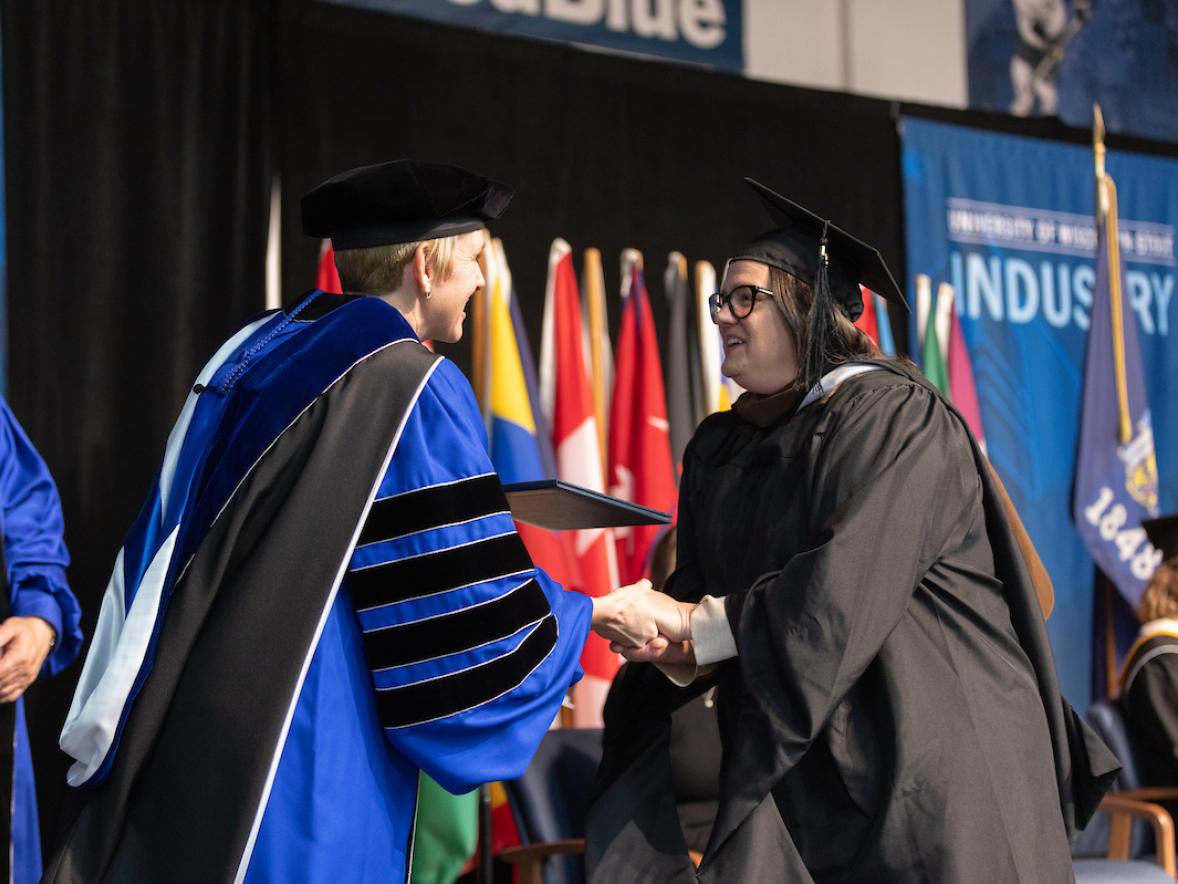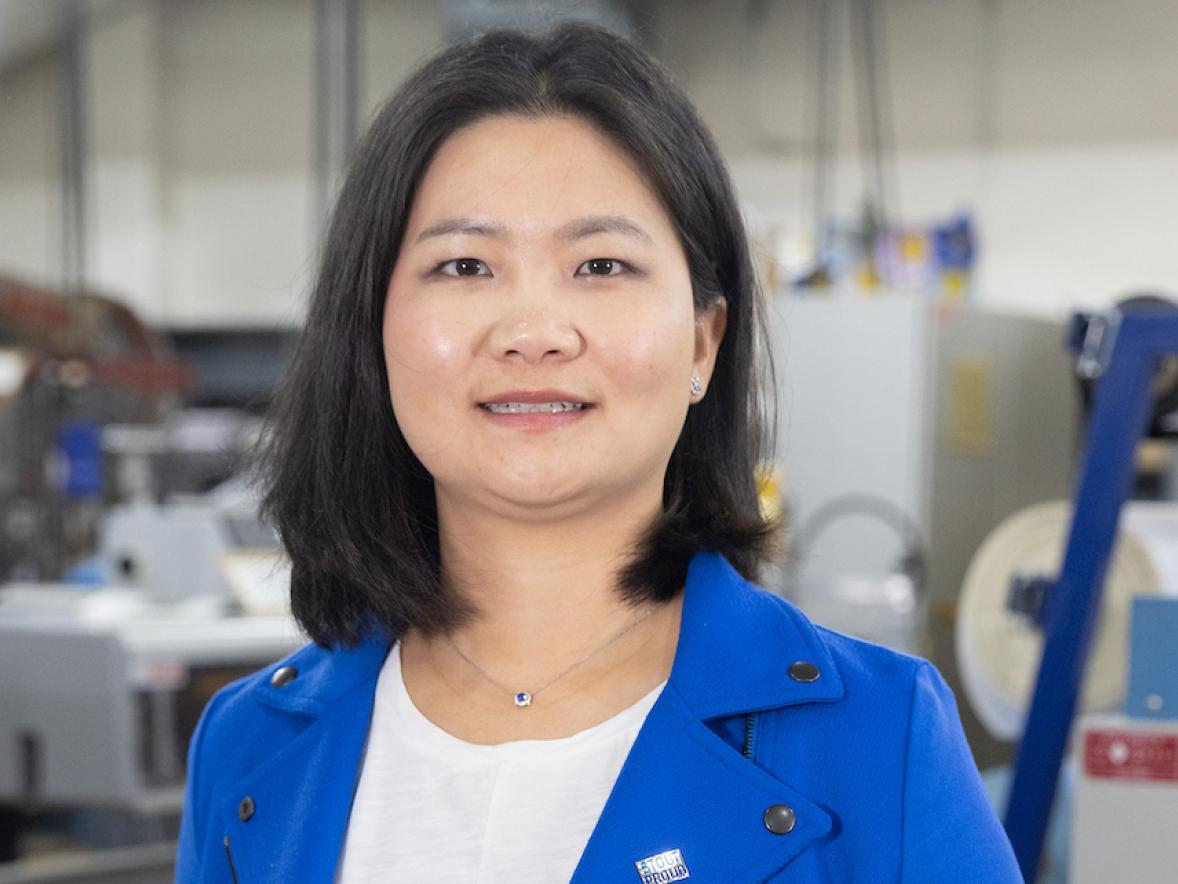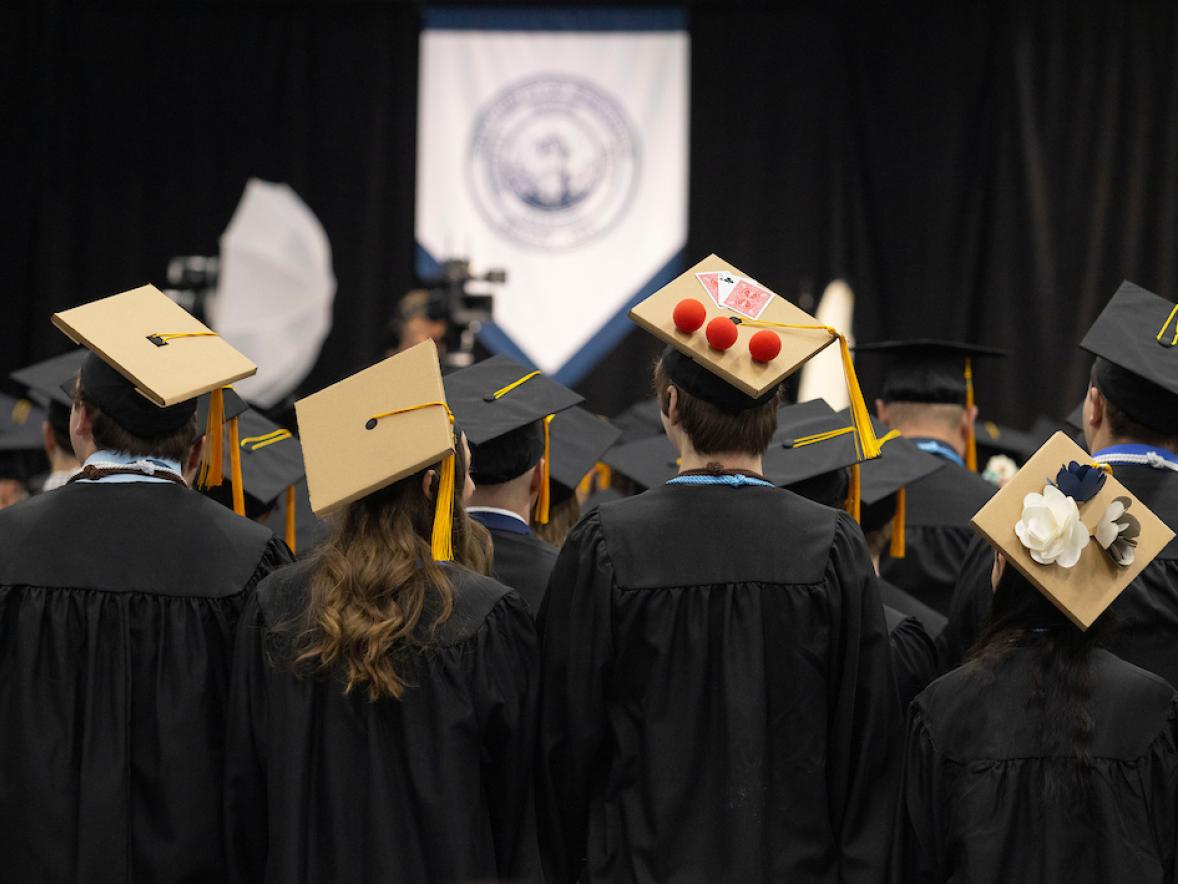Despite the ongoing military invasion by Russia that has turned their country and their lives upside down, 100 students from Ukraine are thinking about the future.
They have received some help from University of Wisconsin-Stout Assistant Professor Mary Spaeth, who presented virtually March 30 about entrepreneurship to a class at Ivan Franko National University of Lviv.
Her talk helped kick off a seven-week course, Innovative Spring of Ukraine. The course was conceived by Professor Ihor Katernyak, a friend of Spaeth’s, in the face of the invasion to help the country be prepared to restart and rebuild its economy.
That the course, designed to inspire students and researchers in engineering, life and computer sciences, and economics, is being held at all says much about the people of Ukraine. That it has drawn 100 students from across the country and even some internationally “who want to change our country for the better,” according to a university news release, is a testament to the indefatigable Ukrainian spirit that has been on display during the war.
The end of Spaeth’s presentation was interrupted by air raid sirens.
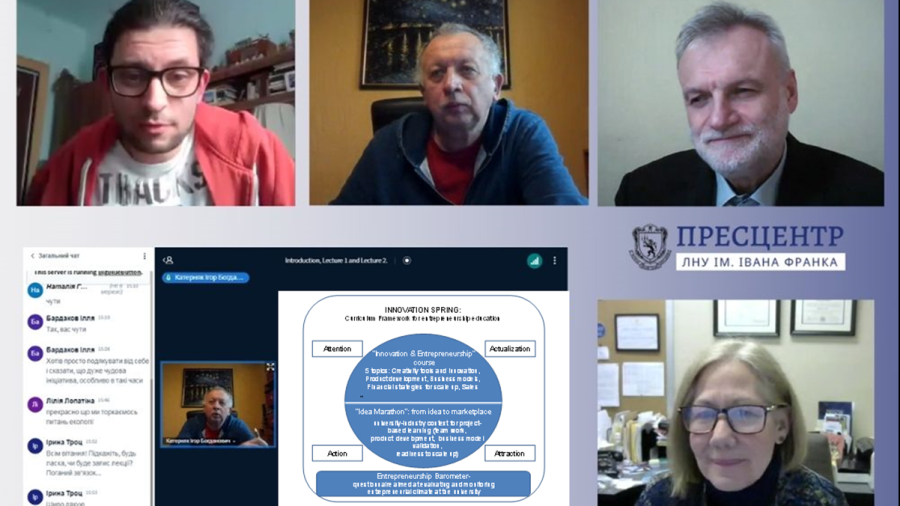
“About six minutes before the end of my talk and preceding the Q&A, Ihor interrupted to tell me there were air raid sirens in some of the communities where the attendees were sitting, so he asked if he could make an announcement,” said Spaeth, who teaches international business and entrepreneurship. UW-Stout has a business administration major.
“In Ukrainian, he let them know that he was recording the session and that they could listen to it later. It was not the kind of announcement that one normally expects in a lecture. We did not take time for questions, but the students and guests were profuse with their thanks and comments in the chat box, and I was overwhelmed by their kindness and energy,” she said.
Spaeth’s talk was titled, “Actualization: Going Global with Your StartUp: From Capital Flight to Reinvestment and Growth.”
“Entrepreneurship means not only freedom, but it means opportunity for rebuilding economies,” Spaeth said. “As I cite in a 2010 article from Fast Company, ‘the global cost of conflicts is $100 billion; dishing out charity cash and sleeping bags to these regions doesn’t change much — but introducing innovation and business skills to the local economy can,’” Spaeth said.
Katernyak said students are remaining engaged in their studies while getting involved in the war effort.
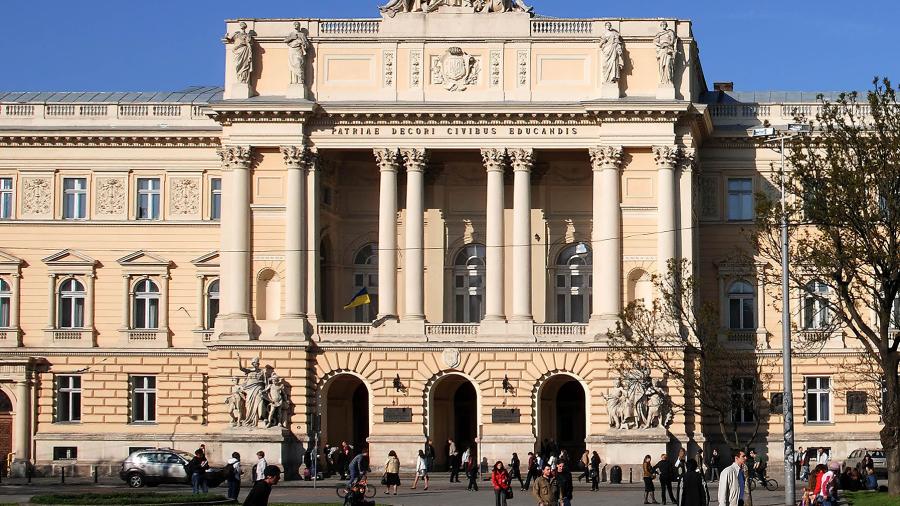
“What is common for all students here is their great involvement in volunteering, for example taking shifts and volunteering day and night at train stations, meeting IDPs (internally displaced persons) and helping them with food, necessary stuff, settlement and so on. Some students have joined Territorial Defense Forces. But they continue their studies at the universities. And mentors of students' groups constantly stay in contact with their students,” he said.
Lviv is in western Ukraine, near the Polish border. Ivan Franko National University of Lviv, with about 20,000 students, is the oldest university in Ukraine.
Ukrainian professor also spoke to UW-Stout students
Spaeth’s invitation to speak in Ukraine began with a message she sent to Katernyak the day after the Russian invasion began. She had met him in the 1990’s when he visited the U.S. and she was director of marketing and business development for the Northwestern University Evanston Research Park.
They have been friends ever since. “Ihor and I share enthusiasm for economic development and entrepreneurship,” she said.
She was hoping to have Katernyak speak at UW-Stout’s Ideation Jam, part of the Wisconsin Big Idea tournament, on Feb. 26 but was hesitant to ask him given the turmoil in Ukraine.
“He responded readily and enthusiastically saying that he would like to ‘meet’ them. So, he visited via Zoom and shared his thoughts about their startup journeys. He ended the talk saying that it was evening in Lviv and that they needed to turn off the computer and lights to avoid missile detection, and he softly but firmly said to the students, ‘Entrepreneurship is freedom.’”
About three weeks later, Katernyak told Spaeth he was starting the course in Ukraine, for undergraduate, master’s and Ph.D. students, and asked her to be a guest lecturer. She quickly agreed to repay the favor and share her enthusiasm for the subject.
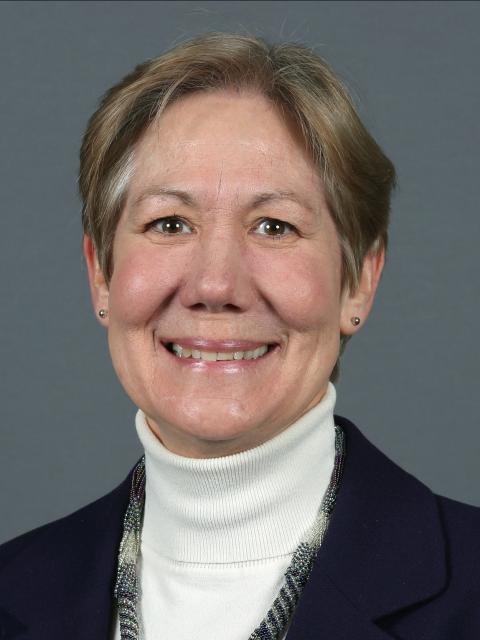
Encouraging students to innovate
Spaeth addressed the war in her talk on March 30 by referencing other recent international conflicts.
“I was more cognizant of empathetic intentionality and attempted to project a kind of understanding for a situation that I could not begin to fully feel or fathom. At the end of the day, however, I knew that our mutual understanding of the power of entrepreneurship, collaborative innovation and a desire for peace would be the theme that we shared,” she said.
Spaeth encouraged the Ukrainian students by noting impressive growth in their country’s business startup community the past decade and “sharing case studies of companies that even they did not know were Ukrainian, such as WhatsApp, Grammarly, Gitlab, Petcube and Jooble,” she said, and offered tips, tools, networks and strategies for taking startups global at their inception.
She told them that 50% of new companies founded in the U.S. between 2017 and 2020 were started by immigrants, and less than 30% of startup founders are native-born Americans.
“I ended with a reminder that: Entrepreneurship, practiced ethically and empathetically, means freedom to gain financial wealth through self-determination and a means to escape difficult situations while making a positive contribution to your community by making the world a better place.”
In late May, Spaeth will reconnect with the course and listen to Ukrainian students’ plans for business startups. She will be in Sweden at the time leading a study abroad course for 17 UW-Stout students, who also will listen to business pitches of these students to an international audience of potential investors.
Before her presentation, Spaeth was introduced virtually by Professor Roman Hladyshevsky, vice rector for research at Ivan Franko National University and academician of the National Academy of Sciences of Ukraine.
Spaeth also gave a keynote address on March 31 to the Women’s Entrepreneurship Summit in the Asian Pacific hosted by 3Day Startup in Austin, Texas.
From Thursday to Saturday, April 7-9, she will represent the Entrepreneur Futures Network at the Rice University Business Plan Competition in Houston. She serves on the Advisory Board for EFN.
###





